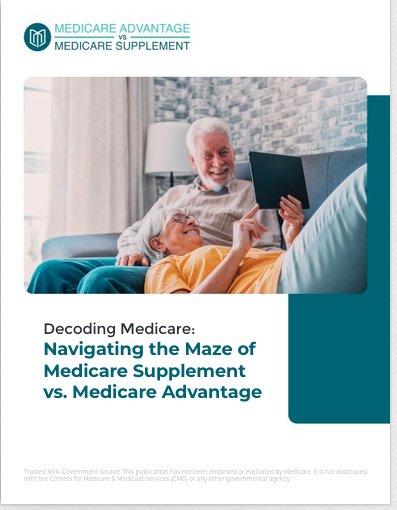Key Takeaways:
- Missing key Medicare enrollment deadlines can lead to delayed coverage and financial penalties.
- Knowing specific enrollment periods such as the Annual Enrollment Period (AEP) helps ensure you make timely Medicare decisions.
You’re Running Out of Time! Medicare Enrollment Deadlines You Need to Know
Medicare is a critical source of healthcare coverage for millions of Americans, but navigating the enrollment periods can be confusing. Missing deadlines can result in penalties or delayed access to essential healthcare services. This article will break down the most important Medicare enrollment periods and what you need to know to avoid gaps in coverage.
What Is the Medicare Initial Enrollment Period (IEP)?
The Initial Enrollment Period (IEP) is your first opportunity to enroll in Medicare, and it lasts seven months. It begins three months before your 65th birthday, includes your birthday month, and extends three months after. If you miss this window, you may have to wait until the next General Enrollment Period (GEP), and you might face late penalties.
IEP Timeline:
| Enrollment Period | Timeframe |
|---|---|
| Begins | 3 months before your 65th birthday |
| Ends | 3 months after your 65th birthday |
| Coverage Start Date (if enrolled) | The first day of your birthday month |
Missing the IEP could result in a lifetime late enrollment penalty for Medicare Part B, which covers outpatient care and doctor services. The penalty adds 10% to your monthly premium for every 12-month period you were eligible but didn’t sign up.
General Enrollment Period (GEP) – A Second Chance
If you miss your Initial Enrollment Period, the General Enrollment Period (GEP) provides another opportunity to sign up for Medicare Part A (hospital insurance) and Part B (medical insurance). The GEP runs from January 1 to March 31 each year, with coverage starting on July 1.
However, keep in mind that enrolling during this period often comes with penalties, especially if you’ve delayed signing up for Medicare Part B.
GEP Timeline:
| Event | Timeframe |
|---|---|
| Enrollment Period | January 1 to March 31 |
| Coverage Start Date | July 1 |
| Potential Penalty | 10% for each missed year |
Medicare Annual Enrollment Period (AEP) – Your Yearly Check-In
The Annual Enrollment Period (AEP), also known as Open Enrollment, takes place between October 15 and December 7 each year. This period is crucial for those already enrolled in Medicare, as it allows them to make changes to their coverage.
During AEP, you can:
- Switch from Original Medicare to a Medicare Advantage plan.
- Change your Medicare Advantage plan.
- Join or switch Medicare Part D prescription drug plans.
- Return to Original Medicare from a Medicare Advantage plan.
Any changes made during this period take effect on January 1 of the following year.
AEP Timeline:
| Enrollment Period | Dates |
|---|---|
| Start | October 15 |
| End | December 7 |
| Coverage Change Effective | January 1 |
Medicare Advantage Open Enrollment Period (MA-OEP) – A Special Option
If you’re already enrolled in a Medicare Advantage plan, you have an additional opportunity to make changes during the Medicare Advantage Open Enrollment Period (MA-OEP), which runs from January 1 to March 31. During this time, you can:
- Switch to a different Medicare Advantage plan.
- Drop your Medicare Advantage plan and return to Original Medicare.
- Enroll in a Medicare Part D plan if you return to Original Medicare.
Unlike AEP, during MA-OEP you can only make one change, and it will take effect the month following your request.
Special Enrollment Period (SEP) – Flexibility for Life Changes
Life happens, and sometimes circumstances change, giving you access to a Special Enrollment Period (SEP). SEPs are triggered by specific life events, such as:
- Losing other health coverage (e.g., employer-based insurance).
- Moving to a new area that changes your plan’s availability.
- Qualifying for Medicaid or gaining access to other healthcare options.
Each SEP is tied to different events and may have varying lengths, typically lasting between 2-3 months. If you delay Medicare enrollment due to employer-based coverage, your SEP lasts for eight months after your employment or health coverage ends.
What Happens If You Miss Medicare Deadlines?
Missing Medicare enrollment deadlines can lead to several consequences:
- Coverage Delays: Missing your IEP or GEP can leave you without Medicare coverage for months until the next enrollment period.
- Late Enrollment Penalties: If you delay signing up for Medicare Part B, you could face a penalty that increases your premiums by 10% for every 12 months you were eligible but did not enroll.
- Limited Plan Options: If you miss the AEP, you’ll have to wait until the next year’s Open Enrollment Period to make changes to your Medicare Advantage or Medicare Part D plans.
Table: Key Medicare Enrollment Periods
| Enrollment Period | Dates | Who Is It For? | Action |
|---|---|---|---|
| Initial Enrollment Period (IEP) | 7-month window around age 65 | First-time Medicare enrollees | Enroll in Medicare Part A and/or Part B |
| General Enrollment Period (GEP) | Jan. 1 – Mar. 31 | Missed IEP | Enroll in Medicare Part A and/or Part B |
| Annual Enrollment Period (AEP) | Oct. 15 – Dec. 7 | Current Medicare enrollees | Switch, drop, or join Medicare Advantage/Part D |
| Medicare Advantage Open Enrollment Period (MA-OEP) | Jan. 1 – Mar. 31 | Medicare Advantage enrollees | Change Medicare Advantage plans |
| Special Enrollment Period (SEP) | Varies based on event | Triggered by life events (e.g., moving) | Enroll or make changes to coverage |
Avoiding Common Pitfalls
Missing these key dates can lead to costly mistakes. It’s important to set reminders and mark your calendar well ahead of time to avoid unnecessary penalties. Here are a few tips to avoid missing deadlines:
- Set up digital reminders: Use your phone or computer calendar to set reminders ahead of each deadline.
- Stay informed: Sign up for email alerts from Medicare or your healthcare provider to stay updated on changes to coverage and deadlines.
- Seek professional help: If you’re unsure about the enrollment process, consult with a licensed insurance agent or the State Health Insurance Assistance Program (SHIP), which provides free counseling on Medicare options.
Don’t Let Time Run Out!
Understanding Medicare’s various enrollment periods is essential for securing the coverage you need without unnecessary penalties. Missing these deadlines can be costly, so it’s important to take timely action to protect your health and finances. Whether you’re new to Medicare or looking to make changes to your current plan, knowing the key dates and details can make all the difference.









